The Winner
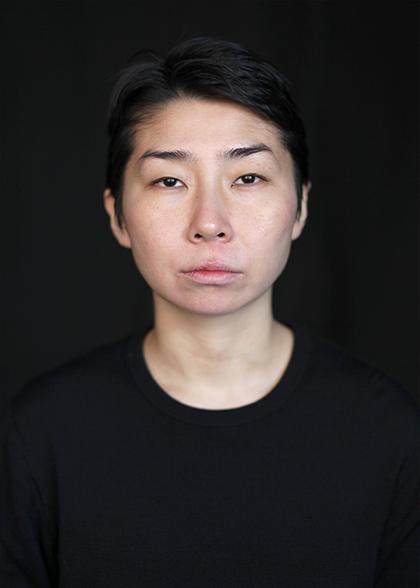
©Miura Hiroyuki
Oda Kaori
Born in 1987 in Osaka Prefecture, Japan, Oda Kaori is a filmmaker/artist who explores human memories (voices) - where did we come from, and where are we headed? - through images and sound.
From 2013, she participated in Tarr Béla's (Sátántangó, The Turin Horse) film.factory program to educate new filmmakers, and completed the three-year PhD-level academic course as one of the first generation of students. In 2014, she was designated as an overseas researcher by the Pola Art Foundation.
Oda’s first feature-length film, ARAGANE (2015), shot in a Bosnian coal mine received high acclaim and was commercially released in 2016. Her essayistic documentary film Toward A Common Tenderness was completed in 2017. Her latest feature-length work Cenote was completed in 2019 and premiered in Japan and worldwide at the Yamagata International Documentary Film Festival and the International Film Festival Rotterdam. Cenote is set for theatrical release in Japan in June 2020.
Jury’s Comments
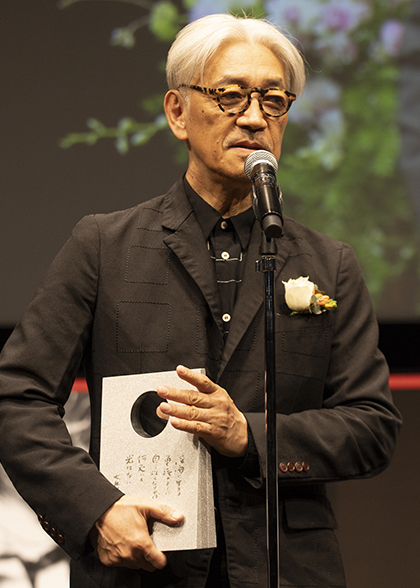
President of the Jury
Sakamoto Ryuichi
Oshima Nagisa was a filmmaker who consistently depicted people impacted by country, power, history, or national borders. He also stood up against common sense. He was a filmmaker and also a philosopher.
When considering who deserved a prize named after such a brilliant director, the only filmmaker that I could think of in today’s Japan was Ms. Oda Kaori. Her latest work Cenote was filmed in natural sinkholes in Mexico that Mayans regarded as sacred. As you probably know, the Mayans were basically wiped out around 500 years ago when Europeans invaded their land, though some of their descendants still survive making a meager living. Cenote does not express this background in a direct way, but the 500 years of suffering of the Mayan people permeates from the screen. I was impressed by how this aligns with Mr. Oshima’s philosophy.
While the spirit of the Oshima Prize is to award young filmmakers who are about to step out on the global stage, Ms. Oda has already spread her wings around the world and is not struggling within the confines of Japan. Her previous film called ARAGANE is also fabulous, but her latest film Cenote is several times better, so I hope many people see it.
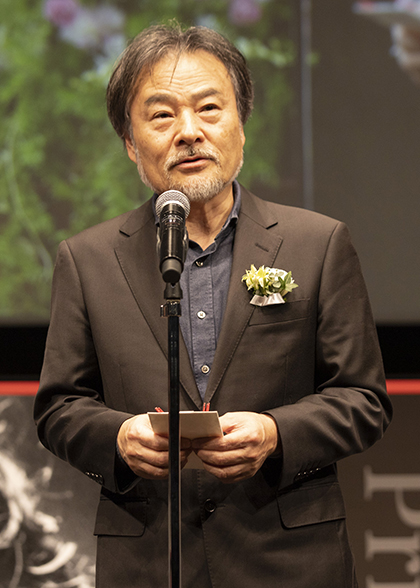
Kurosawa Kiyoshi
I had the honor of seeing Ms. Oda Kaori’s works for the first time and was convinced. I initially thought that it would be extremely difficult to find a filmmaker among the young people in Japan today who would be worthy of a prize named after Oshima Nagisa. I agreed to serve as a judge while wondering who should be awarded with such an honor, but after encountering Ms. Oda’s works, I knew that nobody else deserved it more than her.
This is a very weighty prize, and I hope she continues to make more quality works in the future.
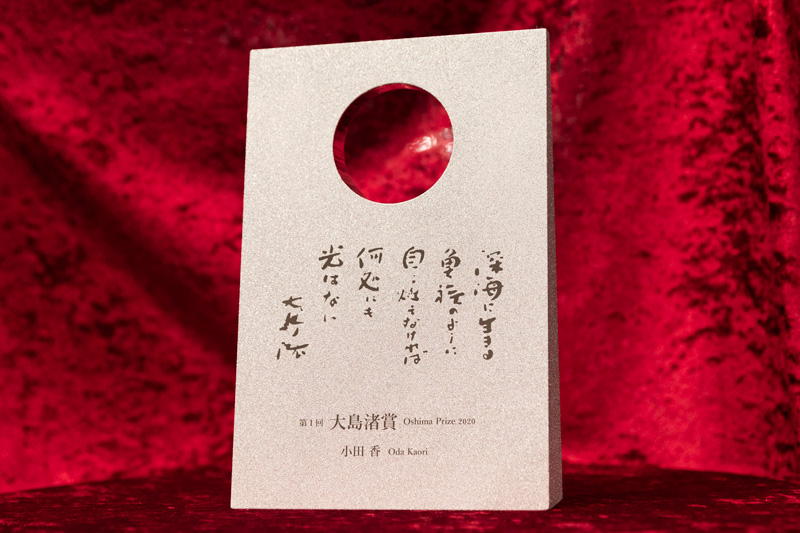
The trophy features Oshima Nagisa’s personal motto made from a rubbing of the self-written version engraved on his tombstone.
This trophy and supplementary prize of a million yen were awarded to Ms. Oda.
Made by: Terada Naoki / Terada Design
Rubbing by: Tokyo Bunbutsu
The winner’s Comment
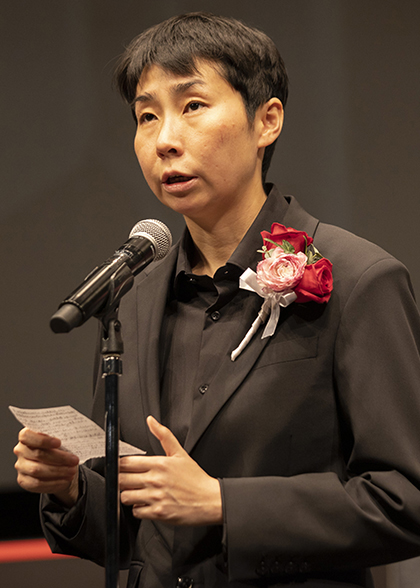
Oda Kaori
I’m very honored to receive the inaugural Oshima Prize. I’d like to thank everyone involved in this award.
Last spring, I was given an opportunity to visit the Nagashima-Aiseien national leprosy sanitorium in Setouchi, Okayama Prefecture. I saw the ossuary, the wards, and also went through the museum of history. I came across Akashi Kaijin’s poetry anthology there and was inspired by the preface, which includes the quote that Mr. Oshima lived by as his personal motto. I learned about people quarantined because of the nation’s foolish policy, the Leprosy Prevention Law, who lost their names, suffered from high fever and nerve damage, lost their sight, and yet wrote poetry, painted with brushes, and played music, draining what vital energy they still had.
People who live facing limited time and impossible irrationalities still need to express themselves, risking their lives, in order to find light and survive.
As I live making films from now on, I’m sure I’ll often come up against hardships. When I do, I’d like to recall Mr. Oshima’s motto and those people who really lived. I intend to continue down the path of cinema by continually questioning myself whether I am currently living and expressing as if my own vital energy and life depended on it.
Dear Ladies and Gentlemen,
Dear Kaori,
First of all, I would like to congratulate to you and I want to confess for you, I am very proud of you. I had a luck to meet with you, for me it was one of my gift from the life.
Because you understand what is the meaning of the filmmaking.
You understood the film is not story telling, the film is our reflextions for the life, to share with other people our experiencies in a very tender way.
Human faces, human touch, respect for nature and believe the future.
You had done and you are doing....
Kaori,
Now, I just want to say a big thanks for yor work, for your honesty, for your strength and I just want to ask you: PLEASE GO AHEAD!
Big hug,
Béla
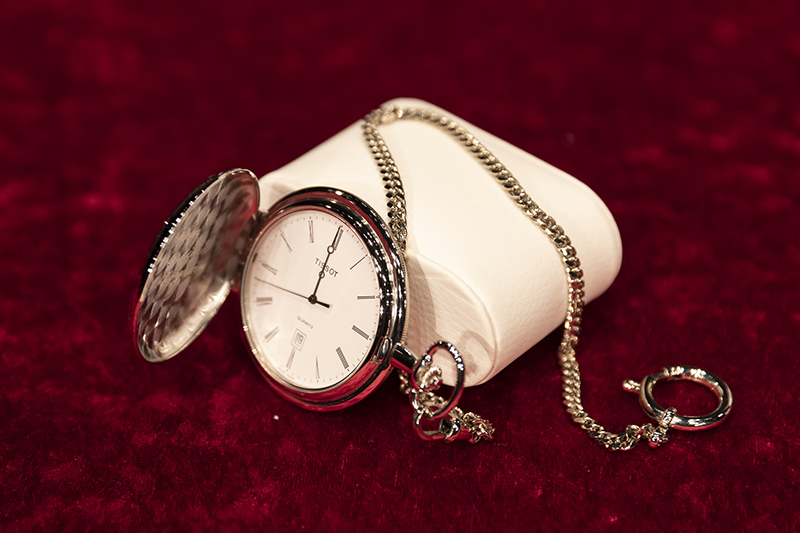
Mr. Oshima Nagisa’s widow and actress Koyama Akiko presented Ms. Oda with a pocket watch, which is something Mr. Oshima used regularly. Their names are engraved on the inside of the lid.
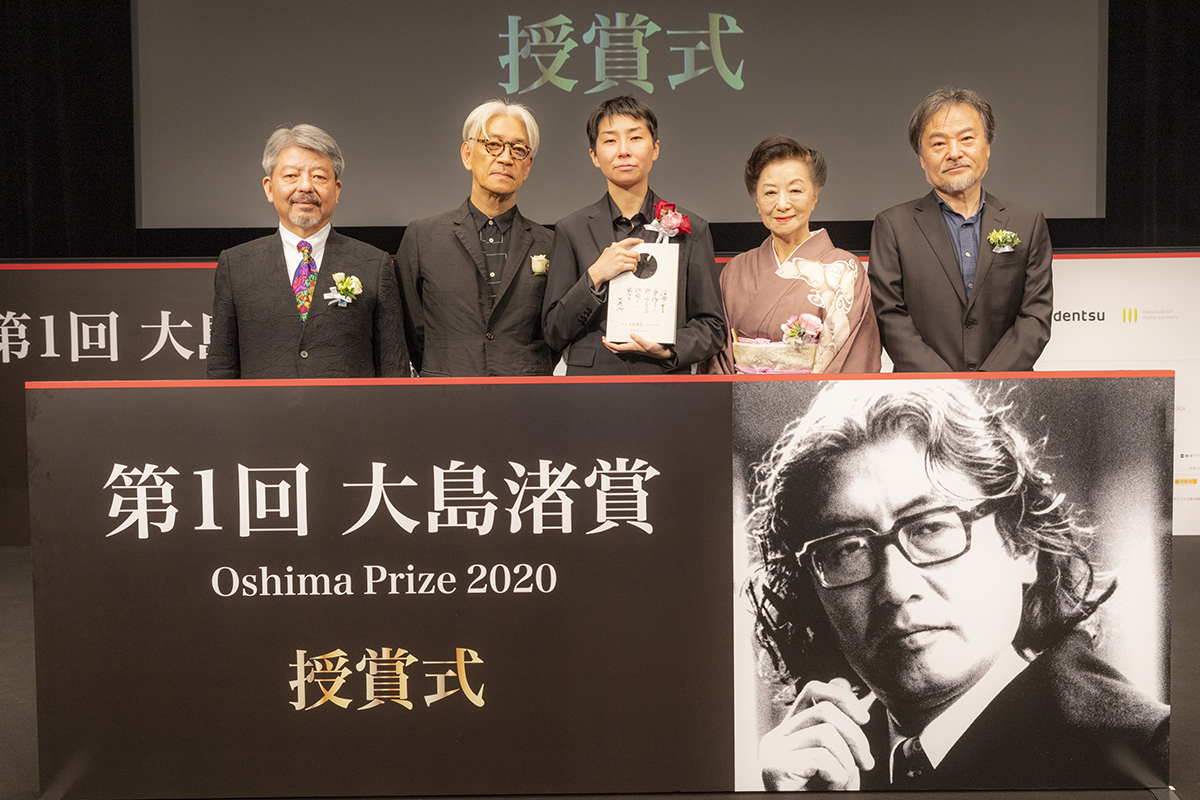
CEREMONY & COMMEMORATIVE SCREENING
| CEREMONY |
Date: Thursday, March 19, 2020 Place: Marunouchi Hall, Tokyo *No tickets will be made available for this event. |
|
|---|---|---|
| COMMEMORATIVE SCREENING |
Films by the prize winner and Nagisa Oshima are scheduled for screening. (Guest appearance also scheduled.) Date: Friday (Holiday), March 20, 2020 Place: Marunouchi Hall, Tokyo More information |
|
